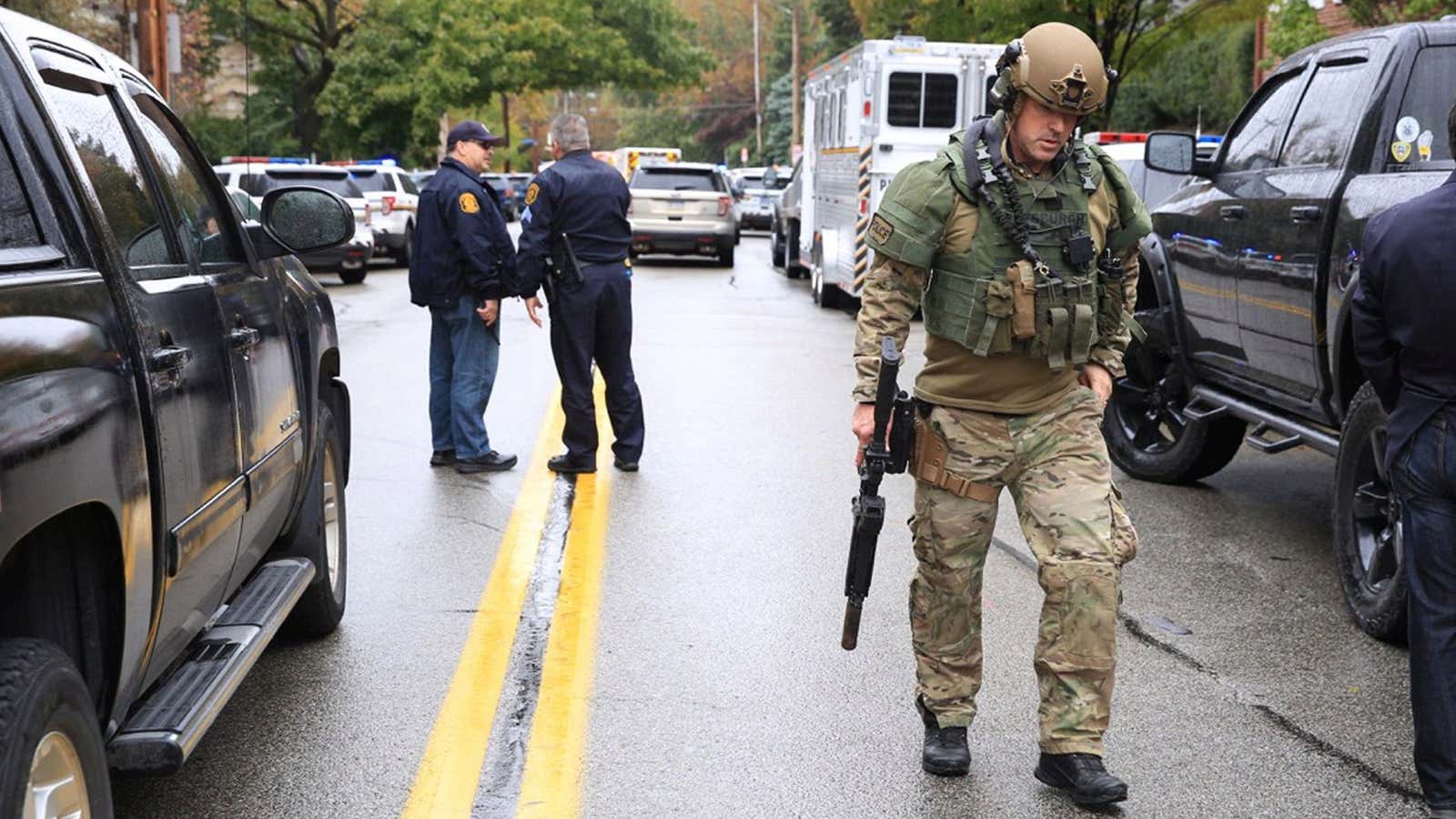A gunman has killed multiple people, and shot at least 12, including three police officers, at a synagogue in Pittsburgh, Pennsylvania, on Saturday (Oct. 27). The suspect has been named as 46-year-old Robert Bowers. While we don’t yet know his motives—authorities are treating the attack as a hate crime—we do know that this tragedy is the culmination of years of rising anti-Semitism in the US, both off and online, that has ramped up ahead of the November midterm elections.
According to a report by the Anti-Defamation League (ADL), a Jewish civil-rights group, the midterm elections have been a “rallying point” for far-right extremists to organize efforts to spread hate against Jews online. The ADL released a report just yesterday, on Oct. 26, which found that far-right extremists in the US have generated a wave of anti-Semitic harassment against Jewish journalists, political candidates, and private citizens. As the report states: “The online public sphere—now a primary arena for communication about American politics—has become progressively unhospitable [sic] for Jewish Americans.”
But it’s not just online. In 2017, anti-Semitic incidents (including physical assaults, vandalism, and attacks on Jewish institutions) surged nearly 60% over the previous year, according to an ADL audit, the largest single-year increase on record, and the second-highest number reported since the ADL started tracking anti-Semitic incidents in 1979.
That same survey showed that a majority of Americans are concerned about violence directed against American Jews—with good reason. There have been a number of recent, high-profile anti-Semitic incidents, such as the “Unite the Right” rally that took place in Charlottesville, Virginia, in August 2017, where hundreds of marchers threw up Nazi salutes, waved swastika flags and shouted Sieg Heil (a common Nazi-era German salutation), and “Jews will not replace us.” The march led to the death of counter-protestor Heather Heyer. There have been hundreds of Jewish tombstones vandalized in Pennsylvania and Missouri in March 2017, and a synagogue in Evansville, Indiana, woke up to find a bullet lodged in a Hebrew school classroom window that same month. And now, a shooting, during Saturday services at The Tree of Life Synagogue in Pittsburgh.
The suspect, who has surrendered into police custody, was overheard telling police that “all these Jews need to die.”
The United States of 2018 is full of routine acts of partisan violence against racial and religious minorities, which some have attributed in part to the aggressive and discriminatory rhetoric coming out of the White House and other elected officials. “Under the campaign and presidency of Donald Trump, America has witnessed a rise in hate crimes, anti-Semitic incidents, anti-Muslim violence, and a resurgence of white supremacy like never before,” according to the Center for American Progress. Hate crimes in the nation’s 10 largest cities increased by 12% in 2017, reaching their highest level in more than a decade, according to the Center for the Study of Hate and Extremism at California State University at San Bernardino.
As this latest incident, and ADL director Jonathan Greenblatt, have reminded us, “words have consequences.”
